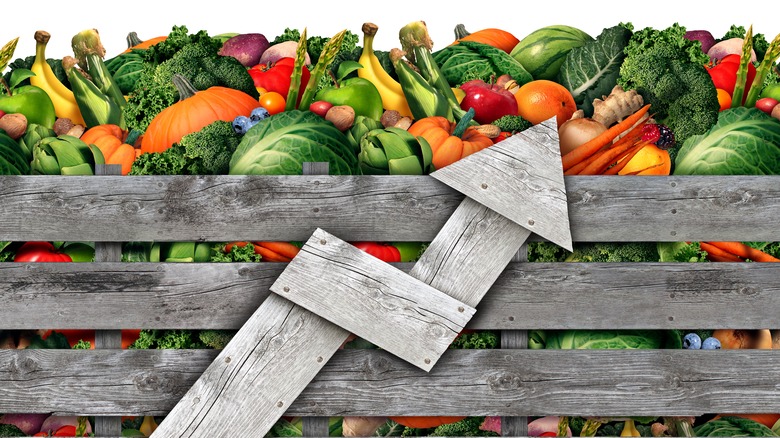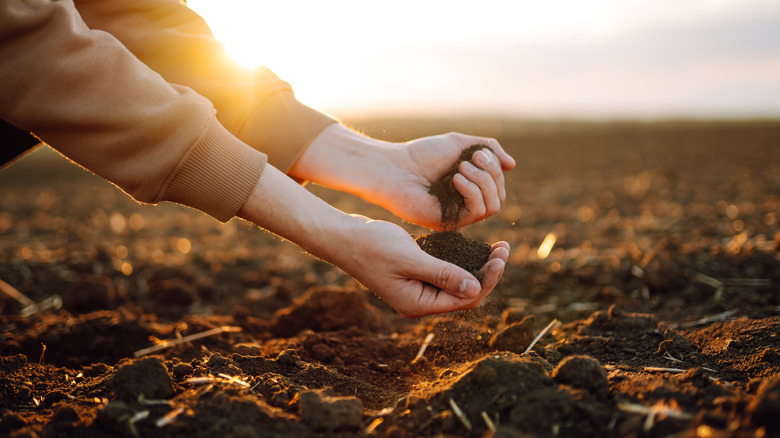If Your Local Farmers Market Has Been Hit By Rising Prices You're Not Alone
With Tesco fighting its suppliers over price increases, one might hope that cutting the middleman by shopping at a farmers market would provide some relief to one's grocery bill. However, like every other part of our food system, farmers markets are suffering under the pressure of inflation — and the reasons that costs are rising come from all over.
Talking to NY1, David Burgan, a farmer who sells canned goods and fresh produce at different farmers markets, explained that the higher prices of glass jars have pushed him to raise his own prices in order to break even. Back in November 2021, NPR covered how the disruption in the global supply chain meant that glass bottles manufactured in Europe and Asia had greater difficulty in reaching the United States. "There's a captain of a shipping vessel who holds my life in his hands," Daniel Liberson, the owner of Lindera Farms, said.
Similarly, spiking fuel prices have presented another cost for farmers who attend farmers markets. As the Illinois-based farmer Mark Pocica told The Takeout, you can easily drive 90 miles one way to attend a farmers market.
Fertilizer has been the most recent shortage
One recent issue to hit farmers with rising prices is inflation in the fertilizer market.
The United States Department of Agriculture (USDA) released a report on June 30 covering the rising price of fertilizer. According to the report, fertilizer represents about 20% of a farm's costs. While the United States does produce some fertilizer, the price of fertilizer bought for the 2023 planting season may jump because Russia produces about 15% of the world's total fertilizer. The USDA stated that despite a slight increase in price in 2021, fertilizer had yet to really surge. However, American farmers were presented with the choice of choosing crops that require less fertilizer or reducing the amount of total crops they produce as a response to the market's unrest.
For smaller farms that attend farmers markets, the landscape seems even more grim. "Seed costs and fertilizer costs have skyrocketed for us, even the organic stuff," Pocica told The Takeout. Erica Burke, a farmer in Michigan, describes how she has been waiting for supplies, which means that if her trees die, it would be catastrophic: "If my trees die, I can't get replacement trees. I can't get boxes for packaging. I can't get fertilizer."
Larger farming corporations may be able to weather this increased cost due to the size of their output, but smaller farms that attend farmers markets are quite as lucky.

